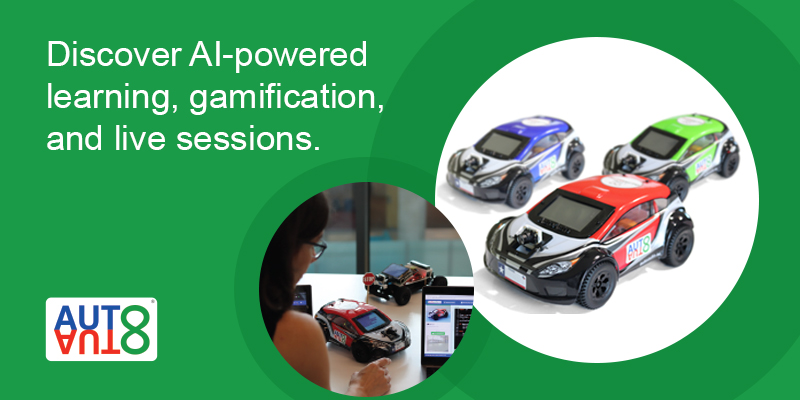Coding has become a core component of school curricula, alongside subjects such as Social Studies, English, and Math. Schools following the IB model emphasize nurturing young minds and unlocking their potential through STEAM. As the demand for coding education intensifies, the call for accessibility of teaching tools and the necessity for curated coding programs becomes more evident. Thankfully, virtual kids’ coding platforms are emerging to address the needs of our budding programmers. Through this Blog post, let us delve into the facts and trends shaping children’s coding journey in 2024.
Catch them Young:
Did you know that coding education is initiated at a young age of 5 – 7 years in most K-12 Schools across Dubai and the Middle East? Would you like to know what the syllabus looks like in classrooms at such a tender age? Most schools introduce ‘block-based coding’ by presenting visually appealing, colorful building blocks where users ‘drag’ and ‘drop’ code blocks to create programs. This makes coding more logical, fun, and intuitive for kids rather than getting overwhelmed by technical jargon. Children use these blocks on virtual kids’ coding platforms, which are widely accessible and affordable, ensuring a higher participation rate.
AI-Powered Learning:
AI is revolutionizing various aspects of our lives, including education. Through AI-led tools and programs, students between the ages of 7 – 12 years can engage in fun coding activities and learn to program Robots without the intervention of a human trainer. Virtual kids’ coding through an AI tutor can motivate children to take risks without fearing being judged by anyone. Another advantage of AI-powered coding tutorials is that the machine understands how kids progress in their studies and tailors lessons accordingly to match the child’s pace.
Gamification Method:
What if we told you that learning to code is as simple as playing a video game? Gamification is transforming complex Python and Java programming language learning into mere puzzles. Studies suggest that gamification can improve knowledge retention by up to 20%. Several virtual kids’ coding platforms introduce superhero characters and mascots to guide students through interactive theme-based games where they apply their knowledge of sequencing, loops, and conditionals to get past levels (1 to 10).

Virtual Coding with AutoAuto:
Imagine a virtual coding game with racer cars, a speed track, and exciting challenges. The task for kids is to write the correct codes to make the virtual AutoAuto car zoom past the racetrack and reach the finish line before their opponents or friends do. The leaderboard showcases the top contenders who outperformed others in race time, design creativity, and coding complexity. This healthy competition can motivate children to improve their coding skills and earn badges to showcase their accomplishments. The AutoAuto platform also has a user-friendliness interface suitable for elementary school students of ages 7-14 years old.
Live Online Coding Sessions:
Experienced and enthusiastic instructors conduct online classes for students across geographic boundaries. The advantage of ‘live’ sessions is that students can interact and clarify their doubts during the Zoom session. Our children also have the opportunity for peer interaction and participating in collaborative projects to enhance their communication skills while getting better at writing codes.
Benefits to Students pursuing coding in 2024:
- Coding enhances problem-solving skills by teaching students to break down complex issues into logical steps.
- It fosters creativity and innovation by enabling students to express themselves through digital projects.
- Coding opens doors to an exciting job market in the future and access to better career opportunities.
- By allowing students to create technology rather than just consume it, coding empowers them as creators, fostering a deeper understanding of technology and its applications.
- Coding prepares students for a data-driven world by teaching them to work with data, interpret information, and make data-driven decisions.






Recent Comments